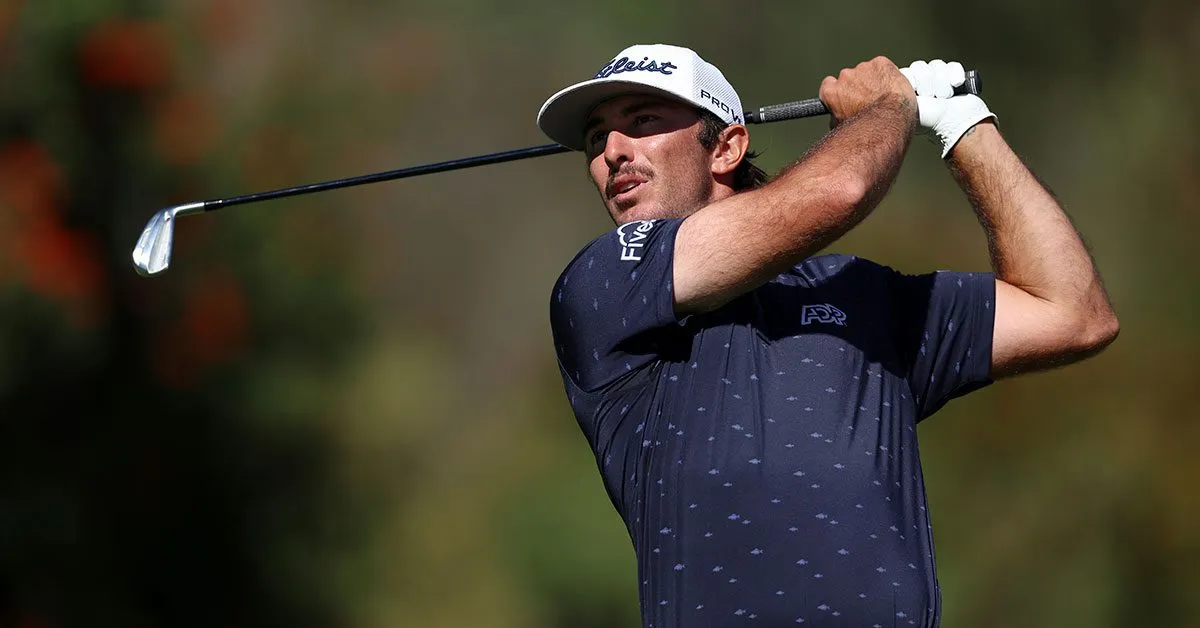Subscribe to our newsletter
We'll send you bets and resources to help you profit
How Does Match Play Work in Golf? How do you Bet on Match Play Golf

AP Photo
What is Match Play Format in Golf?
Most individuals who watch and play golf are accustomed to the standard stroke play, where the lowest score after a round will be declared the leader or winner.
However, there is another variation of play called match play that is used in some golf matches and tournaments. Match play format is where each hole is won individually, and at the end of the round, whoever has won the most holes will also win the match.
Because of the way in which the scoring format works, players are more likely to take riskier shots in order to win an individual hole since their score at the end of the hole will not carry over to the next hole.
During team play, usually one player on a team will take an aggressive approach, hoping to end the hole with a very low score, while the other player will take a conservative approach in order to even out and ensure the overall team score will not be impacted too much.
How Does Match Play Work
Unlike standard stroke play in golf, scoring is based on individual holes won, halved or lost. There can be a maximum of one point scored for each individual hole per person or team.
Golfers play normally, where they are playing to get the lowest score possible. At the end of each hole, the player or team with the lowest score wins that hole and scores a point. If golfers tie on a hole, the result of that hole is each player or team gets half a point.
Once a player is up by more points than there are holes remaining on the course, the match ends and the leading player or team wins the match. If at the end of the course, both players or teams are tied, they will play additional holes until one player or team wins the hole, as a form of sudden death scoring.
Match Play Rules
Here’s some common terminology that you come across with match play golf:
- All square – when the two players or teams are tied at any point of the round
- 1 up – when one of the players or teams have won one more hole than the other player or team
- 2 up – when one of the players or teams have won two more holes than the other player or team
- Dormie – if one player or team is ahead the same number as there are remaining holes. In this situation, the final score will be read as a function of the margin of victory
Subscribe to OddsJam’s YouTube Channel and Never Miss Out on the Top Plays, Tips and Action!
How To Bet On Match Play
In match play, you need to approach the way you bet differently than stroke play. In stroke play, you are worried about who will win outright and where people will place, but you should think of match play as moneyline plays. With head-to-head matchups, you are only concerned with who will win at the end between two players or teams, rather than where each individual player finished the entire round.
In most cases, the better golfer is usually a heavy favorite in the earlier rounds, so taking just the money line may not always prove profitable.
Pay attention to rivalries in the match betting format. These rivalries – both positive and negative – will usually attract more media attention and therefore, more betting attention.
What Golf Tournaments Are Match Play
There are currently four professional tournaments that use match play:
- Ryder Cup (biennial); team tournament that pits USA players head-to-head against European players.
- Presidents Cup (biennial); team tournament that pits USA players head-to-head against international players (non-European).
- WGC Match Play (annual).
- Volvo World Match Play Championship (annual).
Subscribe to our newsletter
We'll send you bets and resources to help you profit





